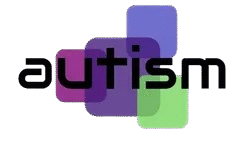In the constellation of health topics surrounding menopause, weight gain typically takes center stage. Yet, for neurodivergent individuals, this transition brings a cascade of challenges that go largely unspoken. The intersection of neurodiversity and menopause is an uncharted territory—one where standard weight management advice often misses the mark entirely.
Neurodiversity encompasses a range of cognitive differences, including ADHD, autism spectrum conditions, sensory processing disorders, and more. These neurological variations shape how individuals experience, respond to, and manage hormonal transitions, including menopause. Yet mainstream health narratives rarely acknowledge how these unique brain profiles affect the capacity for Weight Maintenance during Menopause. This often-overlooked stage of life can be even more complex for neurodivergent individuals, especially when dealing with challenges like menopause weight gain, which is frequently misunderstood and under-addressed in women’s health.
The Cognitive Toll of Hormonal Change
For neurodivergent women, menopause can destabilize already fragile routines. Executive dysfunction—commonly associated with ADHD—can intensify as estrogen declines. This manifests as disorganization, forgetfulness, and impaired impulse control. For individuals who rely on carefully structured habits to maintain nutritional and physical health, menopause can derail even the most disciplined efforts.
Add to this the sudden onset of sleep disturbances, anxiety, or mood volatility, and it becomes clear: the hormonal chaos of midlife has a compounded effect for those whose cognitive systems were already working overtime to adapt to a neurotypical world.
Sensory sensitivities, especially around food textures or exercise environments, may also become more pronounced. A well-meaning clinician’s recommendation to “just join a gym” or “cut back on sugar” may overlook the emotional labor required for neurodivergent patients to navigate such spaces.
Metabolism, Medications, and Misdiagnosis
Another complicating layer lies in the pharmacological overlap. Many neurodivergent individuals are prescribed stimulant medications, antidepressants, or mood stabilizers—all of which may impact appetite, metabolic rate, or weight distribution. Menopause introduces further complexity, shifting body composition and hormonal rhythms in unpredictable ways.
Moreover, neurodivergent women often face delayed or missed diagnoses, meaning they may enter menopause without a full understanding of their own cognitive wiring. As a result, their weight gain or emotional shifts may be misattributed to lifestyle factors alone, rather than the intricate dance of neurobiology and endocrinology.
Standard weight management protocols tend to assume a linear relationship between cause and effect: eat less, move more, lose weight. But this model collapses under the weight of neurodivergent reality, where motivation, sensory input, and neurological feedback loops operate differently.
Rethinking Interventions
To support Weight Maintenance during Menopause for neurodivergent populations, interventions must be customized with radical empathy and scientific precision. Step one is education—both for patients and practitioners. Understanding how hormonal shifts influence neurotransmitter activity, and how that in turn affects attention, mood regulation, and appetite, is key.
Nutrition plans should prioritize sensory compatibility as much as macronutrient balance. Some individuals may benefit from consistent, repetitive meals that reduce decision fatigue. Others might require visual cues, reminders, or coaching support to maintain regular eating schedules.
Exercise, too, needs redefinition. Traditional group classes may be overwhelming for someone with auditory sensitivity or social anxiety. Offering low-stimulation environments—like nature walks, swimming, or virtual programs—can improve adherence and reduce burnout.
Clinicians should also screen for co-occurring conditions like binge eating disorder, which is more prevalent among neurodivergent populations. In such cases, weight gain isn’t a result of willpower deficiency—it’s an expression of deeper emotional and neurochemical imbalances that require compassionate, multidisciplinary care.
Advocacy and Access
One of the most pressing challenges is that the voices of neurodivergent women in menopause are still largely invisible in healthcare design. Public health literature rarely acknowledges this demographic, leaving patients to self-advocate in systems ill-equipped to understand their needs.
Medical education must evolve to include menopause through a neurodiversity lens. This means training providers to identify atypical presentations, ask nuanced questions, and offer a menu of therapeutic options—rather than one-size-fits-all prescriptions.
Technology can also play a role. For example, app-based trackers designed for neurodivergent users could help with reminders, meal planning, and behavior tracking without overwhelming the user. Telemedicine offers a safe space for those who find in-person visits overstimulating or logistically difficult.
Above all, the conversation needs to shift—from compliance and control to collaboration and customization.
Toward a New Framework
Maintaining health in menopause is not merely about diet and exercise. It’s about resilience, adaptation, and inclusivity. For neurodivergent individuals, Weight Maintenance during Menopause is part of a much larger narrative—one that includes sensory processing, executive function, emotional regulation, and social support.
We must stop treating weight gain as a moral failure or a matter of poor discipline. Instead, we must view it through the prism of neurobiology, lived experience, and systemic barriers.
Only then can we begin to rewrite the narrative, ensuring that neurodivergent women are not just included—but truly seen, heard, and supported during one of the most transformative chapters of their lives.

